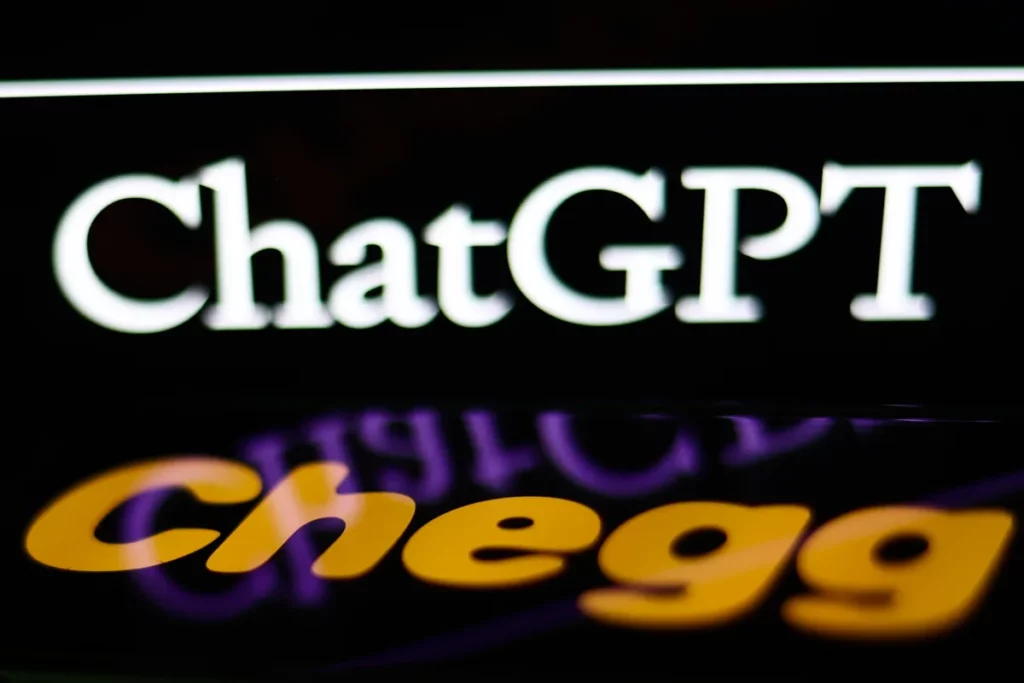
Introduction
Chegg Inc., once a titan in the online education industry, has seen its stock value plummet by 95% from its all-time high in 2021. This article goes into the factors behind this dramatic shift, the implications for the future of online education, and the lessons to be learned from Chegg’s downfall.
Follow us on Linkedin for everything around Semiconductors & AI
The Rise and Fall of Chegg
Initially, Chegg offered textbook rentals, both digital and hard-copy, to students. Over time, the company expanded its services to include a matchmaking business model. It connected students with tutors for academic help, and providing internship and scholarship opportunities.
However, the core of Chegg’s business model lies in its homework help service. Critics argue that by providing students with expert solutions to homework problems, Chegg facilitates academic dishonesty. Some people have labeled this service, advertised as providing expert explanations for homework questions, as “mass-produced organized cheating” because it allows students to easily access answers without necessarily learning the material.
Financially, after reaching a high of $113 per share in 2021, the Chegg’s stock experienced a significant decline. As of the latest data, Chegg’s stock price stands at $3.94, marking a sharp decrease from its previous highs. Various factors are causing this decline, including market reactions to the rise of AI platforms like ChatGPT, which offer similar services for free.It also changed investor sentiments regarding the sustainability of Chegg’s business model.
Read More: How Many Lines of Codes are There in Top Apps: Whatsapp, Tik Tok and MacOS – techovedas
The Catalyst: ChatGPT
As an advanced AI language model, ChatGPT provides immediate and cost-free aid for a wide range of academic tasks. This capability has significantly undermined the subscription-based business model of companies like Chegg, which traditionally relied on paid access to expert solutions for student assignments.
The impact on Chegg’s business has been tangible. Reports indicate that the company has had to reconsider its strategy and workforce in light of the AI threat to its core services. Chegg’s CEO acknowledged the influence of ChatGPT on the company’s growth, leading to significant stock price declines and strategic shifts to incorporate AI into their offerings.
Read More: How Many Lines of Codes are There in Top Apps: Whatsapp, Tik Tok and MacOS – techovedas
Market Reactions and Future Prospects
Goldman Sachs shifted its stance on Chegg, downgrading the stock from Neutral to Sell. The decision was influenced by the increasing competition from ChatGPT, favored by the tech-savvy Gen-Z demographic.
The availability of lower-cost AI-driven alternatives has prompted a reevaluation of Chegg’s subscriber growth projections, with analysts anticipating a potential impact on the company’s market share.
In response to these challenges, Chegg has not remained idle. The company is pouring resources into AI development. Their in-house large language models (LLMs) could soon be integrated with their educational product line.
Read More: GPT-4o: 12 Mind-Blowing Use Cases That Change How We Interact with AI – techovedas
Conclusion
Chegg’s decline is a cautionary tale of how quickly technology can disrupt established industries. As AI continues to evolve, companies must adapt or risk obsolescence. The education sector, in particular, must embrace this change, ensuring that technology enhances learning without compromising academic integrity.








